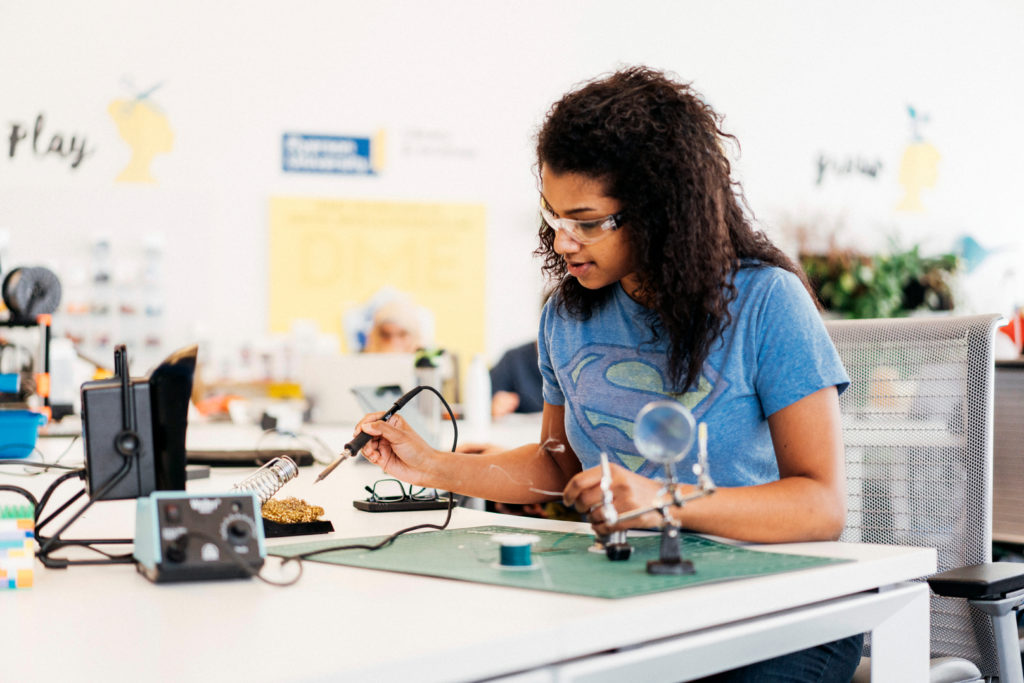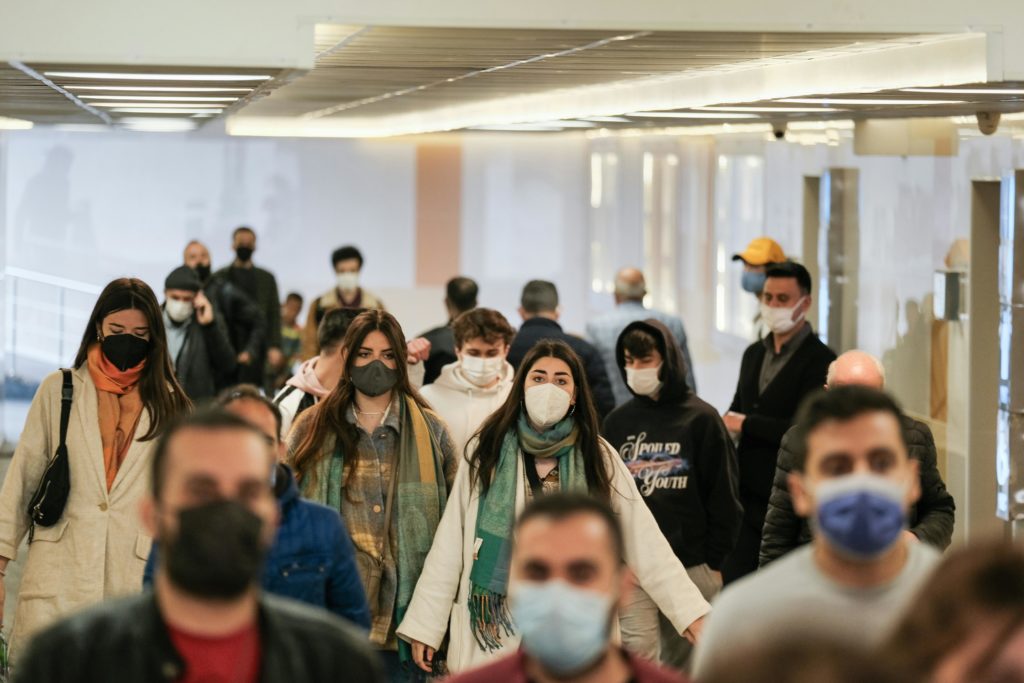
RESEARCH INSIGHTS
Navigating net-zero: Faculty perspectives on greening post-secondary curricula
Sustainable Jobs, Sectors in Transition
Executive Summary
Canada is in the midst of transitioning to a net-zero economy, with growing demands across sectors and industries for workers with green skills. Canada’s post-secondary institutions have a critical role to play in ensuring new grads and mature workers have the in-demand skills needed, but many have yet to integrate climate literacy and green skills into their pedagogy.
This project sought to understand how post-secondary institutions are integrating green skills, climate literacy, and green career pathways into their programming, the barriers they faced, and opportunities for them to be more responsive to emerging green economy needs. To answer these questions, the project performed a scan of existing literature and conducted 20 key informant interviews with instructors and faculty members involved in academic planning at 17 public post-secondary institutions across Canada, representing colleges, polytechnics, and universities.
The project found that changes to curriculum and teaching are being hindered by institutional bureaucracy and that many educators lack the foundational climate literacy and green skills to teach to others. Interviewees encouraged post-secondary institutions to craft their own strategies to address these challenges, while taking note of promising practices like living labs and work-integrated learning. In an increasingly volatile, dynamic labour market, demanding workers be nimble and adaptable, Canada needs equally nimble and adaptable post-secondary institutions to help meet its net-zero targets.
Research Report
Navigating Net-Zero: Faculty Perspectives on Greening Post-Secondary Curricula
Partners
Businesses + Higher Education Roundtable (BHER)
Locations
Canada-wide
investment
$101,800
Date published
April 2024

Key Insight #1
Outside of specific disciplines, particularly education, environmental science, and certain STEM programs, most post-secondary graduates are not receiving an education that helps them understand the connection between their areas of study and climate sustainability.
Key Insight #2
Many educators interviewed felt that teaching climate literacy and green skills fell outside of their specialization. Increased professional development was continually cited as necessary to support faculty in their personal and professional transition to teaching green skills.
Key Insight #3
Partnering with businesses and community groups to create green work-integrated learning opportunities can help post-secondary institutions “short-circuit” challenges related to agility and program responsiveness to industry needs.

 The Issue
The Issue
To successfully transition to a net-zero economy, Canada will require workers with the skills and knowledge needed to fill green jobs, but sectors connected to the green economy face skills gaps and talent shortages around the globe. Green skills include technical skills, knowledge, values, and attitudes to develop and support sustainable social, economic, and environmental outcomes in business, industry, and the community. In Canada, the need ranges from basic climate literacy for entry-level employees to advanced competencies for technically-specific roles.
Canada’s post-secondary institutions have a critical role to play in ensuring new grads and mature workers have the in-demand skills and knowledge required for the transition to a net-zero economy. However, post-secondary responses to climate change have focused more on campus operations and research activities versus aligning educational practices with the needs of an emerging green economy.

 What We’re Investigating
What We’re Investigating
This project sought to understand some of the barriers and opportunities to “greening” teaching and learning at Canada’s post-secondary institutions. The research questions guiding this project were:
1. How are post-secondary institutions integrating green skills, climate literacy, and green career pathways into their programming?
2. What barriers are post-secondary institutions facing? And what potential opportunities exist to address these barriers?
3. What support do post-secondary institutions need to be more responsive to emerging green economy needs?
Partners performed a scan of peer-reviewed and gray research, synthesizing themes and identifying knowledge gaps.
Using the results of the literature scan, partners conducted 20 key informant interviews in the spring and summer of 2023 with instructors and faculty members involved in academic planning at 17 public post-secondary institutions across Canada, representing colleges, polytechnics, and universities. Interviews focused on post-secondary stakeholders involved in academic planning and curriculum development at institutions committed to integrating sustainability into courses and programs.
 What We’re Learning
What We’re Learning
Post-secondary institutions are hindered by a lack of agility. Regardless of the institution type, many of the stakeholders interviewed described the process of updating courses or programs to include climate change and sustainability content as time consuming and bureaucratic. Interviewees identified that there may be opportunities to overcome this with committed faculty leadership as well as increased participation of student leaders in curriculum development
Faculty need capacity building to align educational practices with the needs of an emerging green economy. Many of the interviewees felt that teaching climate literacy and green skills fell outside of many educators’ specialization, and called for increased professional development to support faculty in their personal and professional transition to net-zero and teaching green skills. Interviewees had a range of suggestions to address this barrier, including the creation of sustainability centres staffed with people knowledgeable in sustainability to provide the support and resources post-secondary institutions need to green their programs.
No one-size-fits-all solution. Interviewees felt that post-secondary institutions need to create their own strategies to embed climate literacy, sustainability, and green skills into their teaching and research activities. However, there are a range of promising practices to be leveraged, like living labs and integrating more green work-integrated learning opportunities for students, both of which leverage the connection between post-secondary institutions and industry.
 Why It Matters
Why It Matters
Post-secondary institutions have a unique role in tackling climate change, tasked with preparing students for a job market that is being profoundly disrupted by the transition to net-zero. How they organize their infrastructure, research priorities, teaching and learning, and industry and community partnerships impacts this transition on local, national, and global scales.
However, stakeholders interviewed in this project highlight the real constraints post-secondary institutions face in meeting this challenge. While the labour market becomes increasingly volatile and dynamic, requiring workers to be more nimble and adaptable, post-secondary institutions and the policies that govern them remain rigid.
Opportunities exist for industry to collaborate with post-secondary institutions to design and implement programs to prepare students for the green economy. But that will require growing and evolving how industry and post-secondary institutions communicate and work together to tackle what are, ultimately, shared priorities.
More from FSC
Luminary: Advancing Indigenous innovation
Supporting Mid-Career Workers in Retail and Meat Processing
Employers’ insights on social and emotional skills





